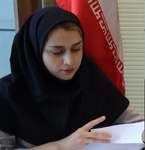Corrigan said Saudis were emboldened by US President Trump’s recent visit to crack the whip and try to reign in Qatar’s Emir Sheikh Tamim bin Hamad Al-Thani and assert Saudi control over Qatar.
"Qatar supported the Saudi attack on Yemen and their attempt to re-install their puppet in Sanaa. Now the allies are at odds and the Saudis are saying that Qatar is supporting the Houthis, a preposterous claim if there ever was one. The same can be said for the Saudis and friends claim that Qatar is supporting extremism and terrorism when the Saudis are clearly guilty of that charge," Corrigan noted in an exclusive interview with Mehr News Agency:
What is your opinion on the recent conflict between Saudi Arabia and some allies, many of which are in OPEC, and Qatar?
To date only five Arab States have broken ties with Qatar: Bahrain, Egypt, Saudi Arabia, and the United Arab Emirates. The Maldives also severed ties with Qatar. Notably, Kuwait and Oman did not break ties. Kuwait has been attempting to mediate the dispute. The dispute shows divisions in the [Persian] Gulf Co-operation Council (G.C.C) but I would say not OPEC.
The membership of OPEC includes the Republic of Iran, Iraq, Kuwait, Saudi Arabia and Venezuela. In 1960 these were the founding Members of the Organization. These countries were later joined by Qatar (1961), Indonesia (1962), Libya (1962), the United Arab Emirates (1967), Algeria (1969), Nigeria (1971), Ecuador (1973), Gabon (1975), Angola (2007) and Equatorial Guinea (2017). Many of these oil producing countries will not support this Saudi led initiative, notably Angola, Ecuador, Iran, Iraq and Venezuela for starters. I think they would see this type of politization of OPEC as divisive and counterproductive.
How do you evaluate US role in the cutting ties of some Persian Gulf states with Qatar? Does US pull strings on the issue?
There has been a long simmering dispute between the Saudis and Qatar. Qatar has pursued a more independent and liberal foreign policy and has not followed the dictates of the Saudis. I do not think that the United States is pulling the strings on this diplomatic crisis. The United States has its largest military base in the Middle East in Qatar, the al-Udeid air base, from where it bases its’ operations in Afghanistan, Iraq, and Syria. The United States 5th Fleet is based in Bahrain as well as its headquarters for the US Naval Forces Central Command (NAVCENT). The US Military and State Department want this crisis to go away. However, I do believe that the Saudis were embolden by US President Trump’s recent visit to crack the whip and try to reign in Qatar’s Emir Sheikh Tamin bin Hamad Al-Thani and assert Saudi control over Qatar.
How do you evaluate the financial and economic consequences of cutting ties with Qatar?
It is true that the Qatari’s Stock Market suffered a decline but then it rebounded nearly 3% the very next day. The Saudi closure of the land border with Qatar will block much of the food shipments to the small country. However, Iran has offered to supply Qatar whatever food it requires. The blockade will cause difficulties for Qatar but as the richest country in the World and the largest exporter of natural gas in the world, Qatar has huge resources that will help it overcome any adversity. The closure of Saudis and UAE air space will force Qatar airlines to fly through Iraqi and Iranian airspace. It will be inconvenient but not crippling. What the crisis may do is force Qatar to forge closer links to Iraq and Iran, something that the Saudis want to stop.
What are the likely effects on regional stability and security, following the conflict in Persian Gulf?
Clearly this dispute demonstrates the fragile nature of the Saudi-led Persian Gulf Co-operation Council (GCC) and threatens the security and stability of Persian Gulf region. There are many factors involved. Turkey for example has a Defense Treaty with Qatar and has a small military base on the peninsula. The Saudi led campaign will drive Qatar closer to Iran and closer to Iraq. Qatar has long been suspected of supporting extremists against Syria. This support may end if Saudis and their allies try to keep up the pressure on Qatar. As noted above the United States will have competing interests over its military bases in the region. The US sold $17 billion worth of arms to Qatar in 2015, representing 42.5 per cent of US arms sales that year.
Qatar supported the Saudi attack on Yemen and their attempt to re-install their puppet in Sana. Now the allies are at odds and the Saudis are saying that Qatar is supporting the Houtis, a preposterous claim if there ever was one. The same can be said for the Saudis and friends claim that Qatar is supporting extremism and terrorism when the Saudis are clearly guilty of that charge.
This dispute demonstrates the division and weakness of the Arab autocratic governments and that they are incapable of getting their act together. They also will not allow for differences in opinion in their policies. The Saudis want to mobilize the Sunni Arabs against their regional rival Iran. However, Qatar shares the world largest natural gas field with Iran and it is imperative that it maintains cordial relations with Iran in order to exploit this resource. Israel of course benefits from these divisions and wants to use the Sunni autocratic regimes against Iran, Syria, Hezbollah and also Hamas.
How do you evaluate the position of other Persian Gulf states towards the event?
Kuwait which is a member of the GCC has not joined the campaign to ostracize Qatar. Nor has Oman. Jordan has downgraded its ties with Qatar. Egypt is dependent on Saudi money and is opposed to the Muslim Brotherhood which supported deposed elected Egyptian President Morsi. Qatar has long cultivated ties to the Muslim Brotherhood, which it refuses to designate a terrorist organization. Neither does the United States.
Turkey’s President Erdogan and his party has links to the Muslim Brotherhood and has voiced support for Doha. I do not think that other States, and in particular Western States, will interfere unless their economic or strategic interests are threatened. It is also important to remember that Qatar has made some major investments in Russia.
The Saudis and the UAE can only buy so much support with their money. They really have very little military power. The only states they can threaten is tiny Qatar, the U.A.E. and Bahrain. But to attack Qatar opens up a hornet’s nest that may come back and bite the feudal states in the Persian Gulf and could set a precedent that just might destroy them.
How do you evaluate the international reactions to the conflict?
So far international reactions are mute and take a wait and see approach. The United States is sending conflicting messages. France’s new President Emmanuel Macron has called for a reduction in tensions. Other than the furious tempest in the Persian Gulf, I do not see this conflict expanding. However, if it does expand and other parties get involved like Iran, Iraq, Syria, Turkey and even Russia and its ally China it will get very messy.
Edward C. Corrigan holds a B.A. in History and a Master’s Degree in Political Science from the University of Western Ontario. He also has a Law Degree from the University of Windsor and was called to the Bar of the Law Society of Upper Canada in 1992. His academic area of expertise is the Middle East and he has published many articles in academic publications including Middle East Policy, Middle East International, Outlook and Z Magazine.
Interview by: Lachin Rezaian


























Your Comment